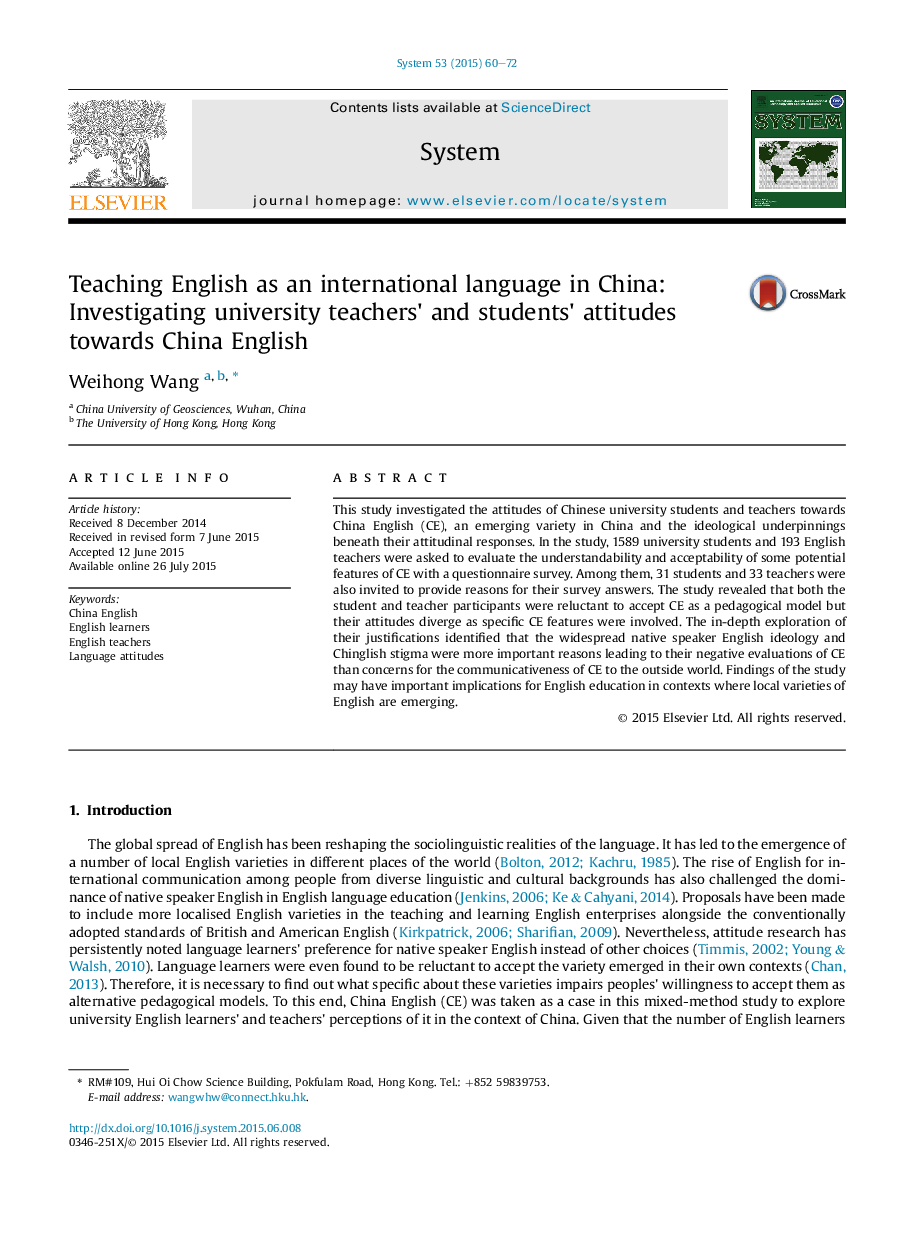| Article ID | Journal | Published Year | Pages | File Type |
|---|---|---|---|---|
| 373010 | System | 2015 | 13 Pages |
•How to reshape English education towards teaching English as an international language framework?•Can local varieties of English serve as potential pedagogical models for English learners?•Teachers' and students' attitudes diverge as regards specific features of local English varieties.•To include local English varieties in classrooms, ideologies of language in local contexts have to be considered.
This study investigated the attitudes of Chinese university students and teachers towards China English (CE), an emerging variety in China and the ideological underpinnings beneath their attitudinal responses. In the study, 1589 university students and 193 English teachers were asked to evaluate the understandability and acceptability of some potential features of CE with a questionnaire survey. Among them, 31 students and 33 teachers were also invited to provide reasons for their survey answers. The study revealed that both the student and teacher participants were reluctant to accept CE as a pedagogical model but their attitudes diverge as specific CE features were involved. The in-depth exploration of their justifications identified that the widespread native speaker English ideology and Chinglish stigma were more important reasons leading to their negative evaluations of CE than concerns for the communicativeness of CE to the outside world. Findings of the study may have important implications for English education in contexts where local varieties of English are emerging.
